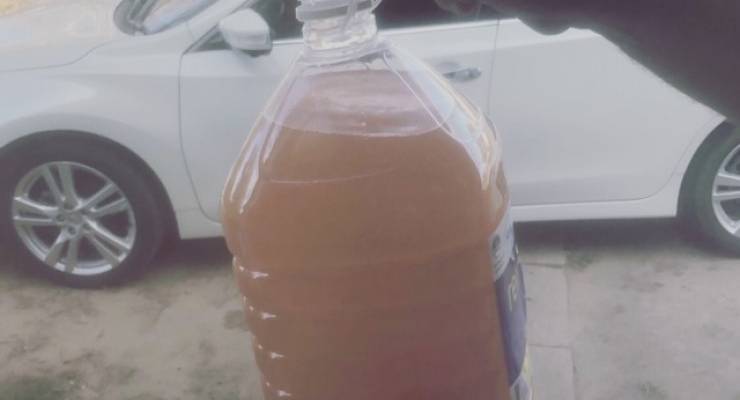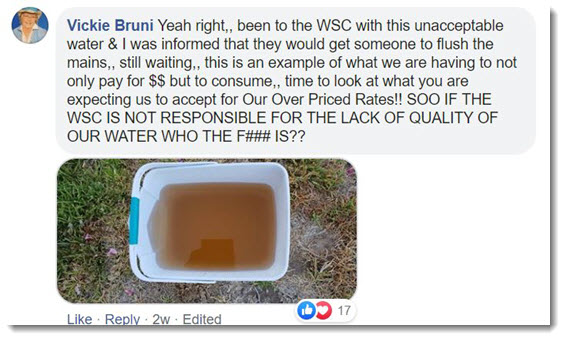
In my language, we call water gali and we know that it equates to life. It is difficult to enunciate the emotions that emerge when you see once abundant waterways run dry, when environmental mismanagement takes that life away.
Our waterways had been protected for millennia but a mere 230 years since colonisation we are on the precipice of complete environmental destruction.
From the decimation of the fish in Sydney’s waterways following first contact to the redirection of waterways and economic bolstering of destructive industries such as cotton farming and mining, the greedy decisions made have all been contrary to the ecological sustainability of this country. We know who we have to thank for this mess.
While drought is cyclical and a clear problem throughout the eastern parts of the continent, the destruction of the Darling, Namoi and Barwon river system is another. Through a complex manipulation of the natural waterways to create weirs and dams, state water authorities and the government are siphoning off water for cotton and other large farms, as well as coal and gas companies.
We have only just passed the halfway mark on 2019, and already the Darling River has sustained two mass fish kills; we have had communities without potable drinking water; and communities are experiencing periods of no running water at all. Havoc is being wrought on the Australian ecosystem.
This once magnificent water system with many tributaries and lakes has had 15 cease-flow events since 2001 and, with the added impact of drought and the changes brought about by climate change, it is no wonder this waterway is suffering — as is the life it sustains.
While I now live in Sydney where the water is clear and access is not an issue, entire communities throughout Australia are dealing with water restrictions that would never be acceptable for urban residents.
In rural communities such as the country hub of Coonabarabran, residents have run out of dam water and are instead treated to the milky and smelly bore water that has replaced it.
Many residents are finding they have to boil this water to use it, and most have to resort to purchasing drinking water from the supermarket due to the spate of health issues arising from the sodium levels in the water.
Despite having access to bore water, they are also subject to level four water restrictions. This means no watering lawns, no use of hoses, timed showers, and restrictions on laundering clothes. Entire townships have been reduced to dust bowls.
Of course saving water is something that we should all strive to do, but it’s a hard pill to swallow for residents. As urban centres create waste after pooling resources, people in the country can’t even give their garden beds a drink.
ABC Western Plains recently presented an image the affected water (at top), which I took when visiting family on country, to the Warrumbungle Shire Council. The council denied it was responsible, saying the water colour and clarity was likely a result of the resident’s pipes.
My family rejected this explanation, and many angry residents took to social media to share their own images of similarly affected water.

The ecological ignorance of those in power is clear. They have allowed farming that is unsustainable in the dry Australian climate, farming which requires massive amounts of water. This is legally taken from the Darling and stockpiled for the watering of crops while our waterway continues to degrade.
Successive state and federal governments have allowed a natural waterway to be manipulated and diverted so that farms can store over 500 gigalitres of water for farming practices that should not even be happening in this country.
Sure, we have heard about the “buyback” as some sort of badge of governmental action, but why are our natural resources continuing to be commodified without thought to the consequences?
When there is environmental devastation, it is always the most vulnerable who feel the effects first and hardest.
Do you you live in a rural or drought-affected area? Let us know your thoughts at boss@crikey.com.au. Please include your full name if you would like to be considered for publication.







It’s insanity, isn’t it? Or maybe the inevitable outcome of a crony capitalist system run by amoral, greedy crooks and shonks that care for nothing other than lining their own pockets?
These greedy bastards have this country in a death-grip. They don’t care if the country dies – they will simply use their wealth to relocate.
I simply don’t know what we can do about it. Democracy seems incapable of saving us.
We voted for this.
Ah but I have my ute! That’s all I need!
The way people go through mental gymnastics to add on qualifiers to their critique of capitalism really illustrates why nothing will be done about it until the complete collapse of the system.
Very shocking that the production of profit results in ‘lining pockets’ at the expense of everything else. Must be a few bad apples.
Water was made a commodity and one of the biggest holders of water rights and licences is Malcolm Turnbull who likes to call himself a farmer, primary producers no tax paid.
Privatising and Corporatising Australia’s Water Melita Grant – AID/WATCH – October 2002.
The agriculture sector uses 80% of the available fresh water and 75% of their produce is exported. GDP tied to exports.
Rivers have been dammed up to 99% of their flow, and inappropriate agricultural practices are subsidised by governments while alternatives are invariably rejected on economic grounds.
In June 1995, Keating and his love affair with neo liberal ideology and privatization created the Murray-Darling Cap which put a limit on the amount of water that could be taken out of the Murray-Darling river catchments at the 1993-94 level of usage.
While this decision was seen to be in the interests of restoring environmental flows, it had the effect of handing water to the market to manage and distribute.
As a result, water prices rose threefold in five years and water users have begun trading water – resulting in those who are able to pay the most for it, having greater access
Many people bought into the water trading system when it was first implemented and purchased water licences, all now worth over a million dollars. Turnbull’s are multi millions. Largest water licence holder.
Most of these “water barons” have large stakes in the cotton industry – the second highest water consumer in Australia.
In Australia, investment bankers like Turnbull were salivating at the prospect of water privatisation.
Many hired specialists from the public sector to prepare them for lobbying politicans; some even became MP’s .
Another big player is the attack dog man Corrigan. The Destroyer. We are doomed.
As for the buyback, irrigators opposed them, and here in dairy country on the Murray in Vic they are demanding that the MDB Pla be ‘paused’, you see Pause the Plan signs everywhere, they are ropable that the environment is getting water flows.
I had a long conversation with a dairy farmer last weekend, it’s all about them, he maintained the waterways were splendid. In fact they are disgusting sewers with red azolla weed and dead trees throughout and a drop of 70% of the water flows in the creeks and lagoons. Ramsar wetlands listing? What a farce.
All true, 1984…and on top of that this rotten government is still ‘importing’ tens of thousands of people each year into this country. Apparently this system is vital for ‘growth’. Someone should explain to these drongos what growth is…perhaps in terms of a cancerous/malignant ‘growth’ which continues to spread until it takes over the body and kills it.
Not much different to a country really!!!!
I heard Littleproud say on ABC RN that river systems could be damaged by too much water being put back through buy-backs.
With that level of phantasy there can be no engagement.
But, what if he did not believe such insanity but was saying it for dog whistle value?
Which would be worse, in terms of final effect?
This has been going on since the Tank Stream was turned into a sewer in the colony of Sydney. Wetlands, waterways and the sea have been mined by us incessantly since white settlement. I lived in the New England for over thirty years and watched the trashing of the land and water. Armidale has enough water for twelve months, Guyra is trucking water in, Tenterfield is about the same. This is the glorious New England, headwaters for many of the major river systems on the east coast of NSW. It’s taken less than two hundred years to bleed it dry.